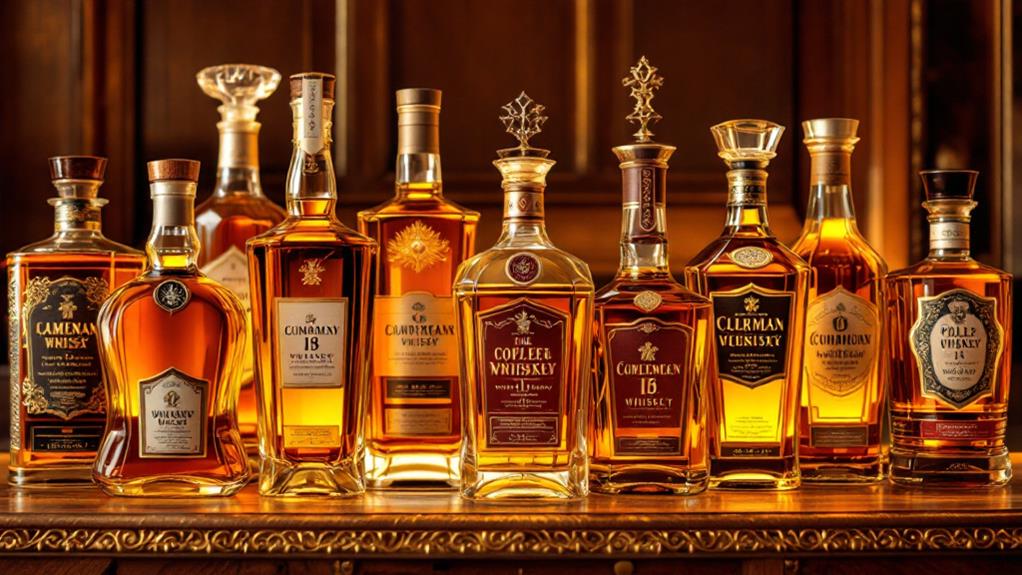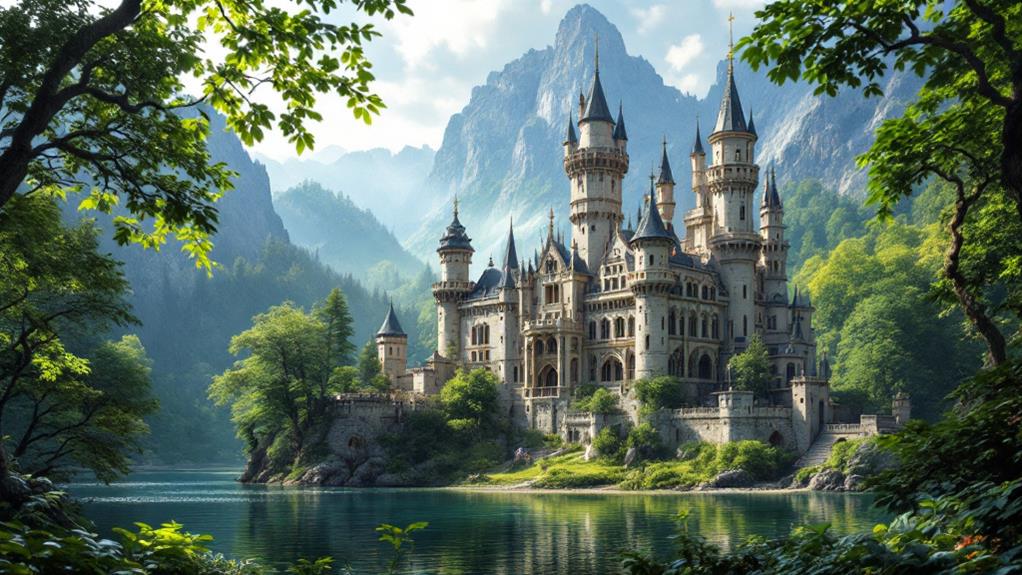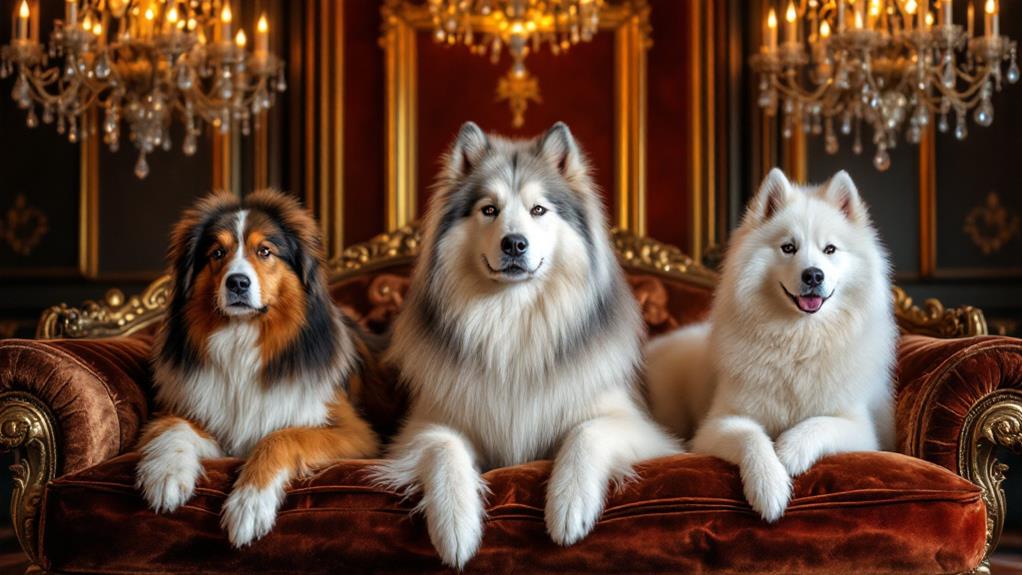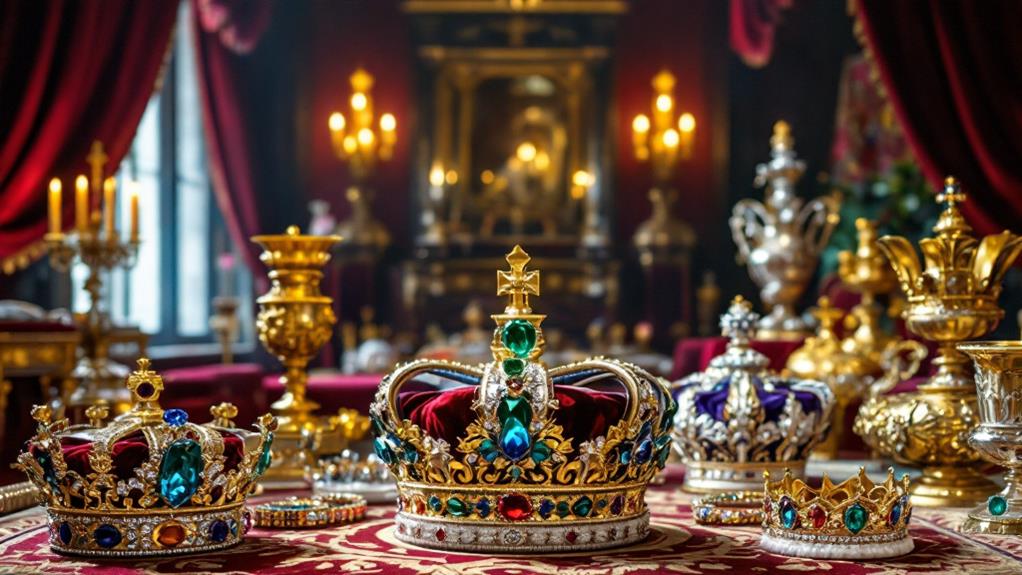Living Like a King: What Life Was Really Like in Royal Times
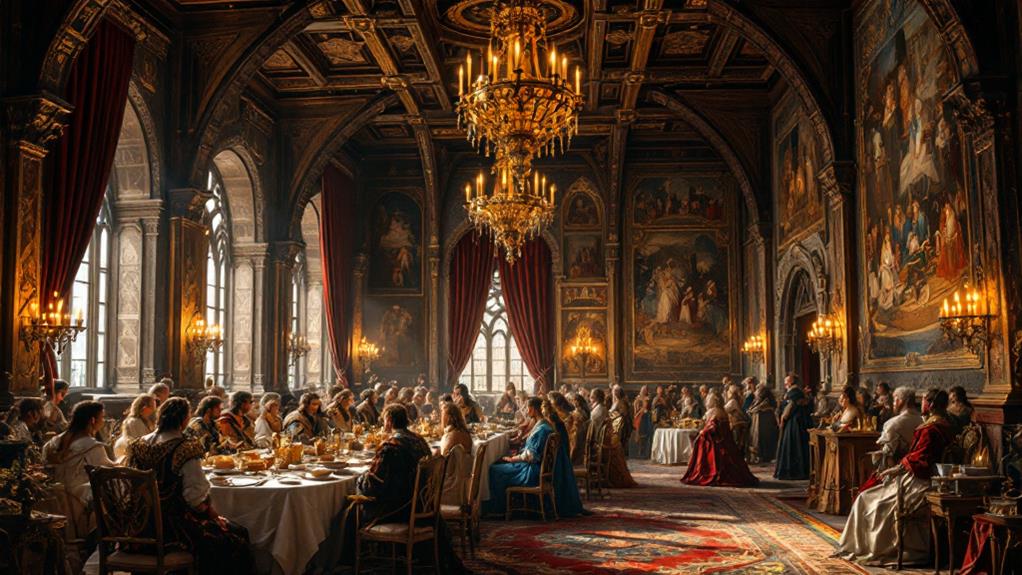
Living like a king in royal times isn't just about luxury and feasting. Your day starts early with prayers and addressing petitions from commoners. Balancing governance and leisure is key, with meetings and state affairs woven into your routine. Meals might seem grand, but they're relatively simple for health. Entertainment could range from troubadours' melodies to jesters' antics. You're deeply involved with the Church, attending mass daily to reinforce your piety and rule. Socially, you're at the top of a feudal hierarchy, responsible for protecting your subjects. There's much more to uncover about this intricate lifestyle.
Daily Rituals of a Monarch
King Charles V's daily routine offers a fascinating glimpse into the structured life of a monarch. Imagine waking up between six and seven o'clock each morning, just like this medieval king. Your day begins with morning prayers and light-hearted exchanges with your servants, setting an optimistic tone for the day. By eight o'clock, you're attending a solemn mass, surrounded by the grandeur of the royal court, the air filled with the sound of sacred singing—a daily ritual that reinforces your piety and presence.
After mass, you step into the courtyard, where commoners await with their petitions. Engaging with them is an essential part of your daily life, ensuring your subjects feel heard. Late morning brings a simple yet satisfying meal, often paired with light wine and sweet music, a brief respite before the serious discussions with ambassadors and nobles begin.
Afternoons are more relaxed, offering time to enjoy family and partake in seasonal activities. Picture yourself in the garden during summer, savoring moments away from the throne. Evening mass follows, and the day concludes with reading and recreation. This routine reflects the Middle Ages' balance of duty and leisure, vital for any effective medieval king.
Governance and Politics
While the daily rituals of a monarch shape the personal life of a king, the governance and politics paint a broader picture of royal responsibilities. In the medieval period, a king's day was a structured blend of governance and leisure, ensuring the kingdom's management remained effective. You'd find the king engaged in regular meetings with the Royal Council, a group of influential nobles and clergy who helped guide the court's decisions. These meetings, lasting about an hour, were essential for collaboration and sound governance.
The king's responsibilities stretched beyond political authority. He had to evaluate the welfare of his family, subjects, and the entire territory. This interconnectedness meant his personal conduct greatly influenced governance. Discipline and instruction from the monarchy helped maintain order, impacting both lands and people.
Engaging with subjects by addressing petitions and concerns wasn't just a duty; it reinforced the king's legitimacy and connection to the people. Imagine the weight of these expectations, the pull of duty and power, and the constant need to balance personal and political life.
- Balancing power and compassion
- Listening to voices in the court
- Upholding justice and fairness
- Maintaining order and stability
- Ensuring the welfare of all subjects
Royal Meals and Entertainment
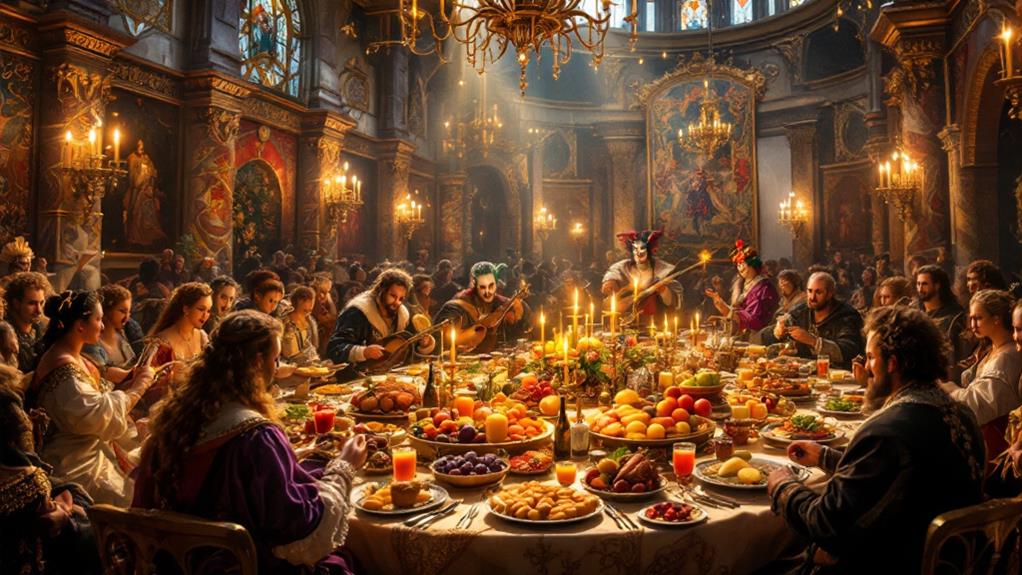
How did meals and entertainment shape the life of a royal court? Imagine sitting down to royal meals that emphasize simplicity and moderation. As a king or noble, you'd start your day with a late-morning meal, featuring light dishes to maintain your health. This approach reflects a keen awareness of well-being among the upper echelons. During these dining experiences, you'd enjoy light wine, all while sweet music fills the air, crafting an atmosphere of leisure and enjoyment.
After savoring your meal, you'd shift to discussions of state affairs, receiving ambassadors and fellow nobles. This blend of governance and social interaction underscores the dual nature of royal responsibilities. Royal meals weren't just about food—they were essential for political and social engagements.
Entertainment played a significant role in royal life, especially during feasts. Picture troubadours, jesters, and minstrels performing, enhancing the celebratory mood and reinforcing social hierarchies. Seasonal activities, like hunting in royal forests or visiting gardens, offered nobles a balance between duty and recreation, allowing them to unwind. These carefully curated experiences of meals and entertainment were fundamental to the rhythm of life within the royal court.
Social Structure and Hierarchy
Imagine steering through the intricate social structure of medieval Europe, where power and privilege were tightly interwoven with landownership. The society you navigate is shaped by a feudal system that defines every aspect of medieval life. At the top, kings and nobles hold sway, their authority rooted in vast estates. These nobles govern and protect the peasants, who toil on their lands in a system of mutual obligation. In this hierarchy, land is the ultimate currency, and titles pass through generations, reinforcing a rigid structure where your birth often seals your fate.
- Feel the weight of expectation as a noble's eldest son, destined to inherit the family legacy.
- Envision the struggles of peasants, whose lives are tied to the land, bound by manorialism.
- Witness the limited roles and opportunities for women, their lives defined by marriage and family.
- Experience the stark contrasts in living conditions between a noble's castle and a peasant's humble dwelling.
- Sense the loyalty and tension in a society where mutual dependency governs every relationship.
In this world, the social structure is an unyielding ladder, each rung defined by birthright, land, and allegiance.
Religious Practices and Beliefs
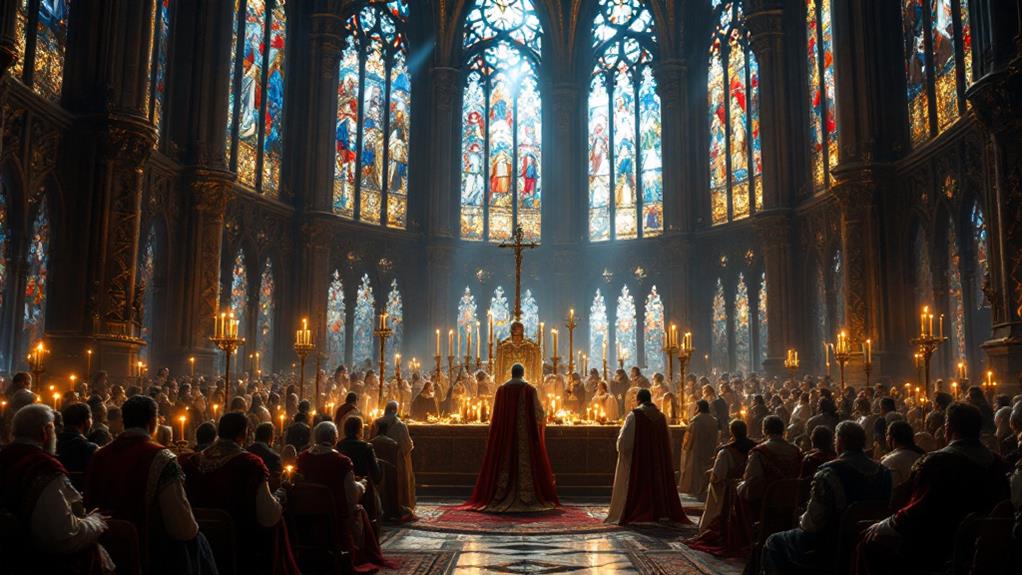
Amidst the towering spires of medieval cathedrals and the solemn chants of monks, one can see the profound influence of religion on every facet of life during royal times. As a king, maintaining close ties with the Church was crucial to legitimizing your rule. You'd actively participate in religious ceremonies, which were significant for reinforcing your authority. Patronizing the construction of grand cathedrals and monastic establishments was a way to showcase your piety and demonstrate a steadfast commitment to Christianity.
To secure divine favor and support for your reign, you'd make significant donations to religious institutions. Your generosity guaranteed that the Church endorsed your leadership and viewed your actions favorably. Furthermore, the clergy played an important role in your life, advising you on governance and morality. Their counsel was invaluable, reflecting the seamless intertwining of religion and politics during this time period.
Attending daily mass was more than a routine; it was a cornerstone of your duties. Regular prayer and religious observance were integral to your responsibilities as a monarch. These practices not only strengthened your personal faith but also reinforced your kingdom's stability, underscoring the Church's central role in royal life.

